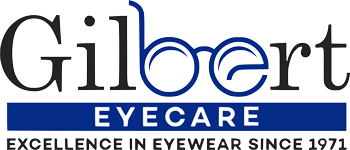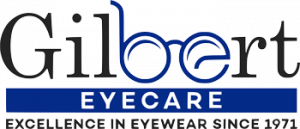What are Cataracts?
A cataract is when the natural lens in the eye goes through changes that include yellowing and opacification. This yellowing happens to everyone, and it is from having birthdays and exposure to sunlight. Mostly cataracts affect people after their 50’s, but cataracts can occur in patients of all ages: even newborns.
Cataracts block the light from getting to the back of the eye so they can cause the vision to be more dim with reduced contrast. The light that does get through the cataract often scatters from hitting opacified areas which can result in blurred vision, halos around light, light sensitivity and glare, and even double vision.
In addition to the natural changes of the lens that cause cataracts, sometimes other factors are involved. For instance, people who take steroids may develop cataracts quicker than usual, or people who have had trauma to one of their eyes.
There are many other causes of cataracts including blood disorders, infections, and inflammation. Risk factors for developing cataracts include smoking, high blood sugar, and sunlight exposure, to name a few.
When is it Time to Fix Cataracts and What is the Fix?
Cataracts often cause changes in the glasses prescription, so sometimes the blurred vision can improve with a careful refraction (where an eye doctor tests to find a patient’s glasses prescription). When changing the glasses prescription no longer helps improve the vision, or when the reduced clarity of vision or symptoms from glare get to a point where it is affecting a person’s day-to-day life activities, that is when cataracts are recommended to be treated.
The correction for cataracts is cataract surgery. Cataract surgery is when an ophthalmologist goes in to the eye, breaks-up the cloudy cataract, removes it, and then implants a new clear artificial lens.
Cataract surgery is the most common surgery done in America. Cataract surgery used to be much more invasive with more chances for complications. Now, the technique has been fine tuned and the technology is so robust that the chances for bad complications is very rare. The average age of cataract surgery continues to go down year after year, because it is becoming safer and safer, so surgeons are more willing to do it on milder cataracts.
Cataract surgery is a 5-10 minute procedure with a recovery time of typically one month. During this month, ~90% of the healing occurs in the first few days. During the healing process the eyes may feel irritated, have mild blurred vision, and light sensitivity. Eye drops are taken for that month of recovery, but are sometimes needed for a longer duration.
The implanted lens can often cancel out any glasses prescription a person may have had previously for looking far away such that he/she would only need reading glasses. At times, a patient may be a candidate for a premium lens implant which may allow clear vision at all distances without the use of any glasses.
How Gilbert Eyecare Can Help:
Our doctors at Gilbert Eyecare can evaluate your eyes for cataracts and monitor them with careful documentation. Once you and our doctors decide it is time to go forward, a consultation will be set up with an experienced ophthalmologist in the area. Gilbert Eyecare co-manages all cataract post-operative care, so we will be with you every step of the way. Contact us at 757-622-0200 (Norfolk) or 757-425-0200 (Virginia Beach) for a cataract evaluation.

